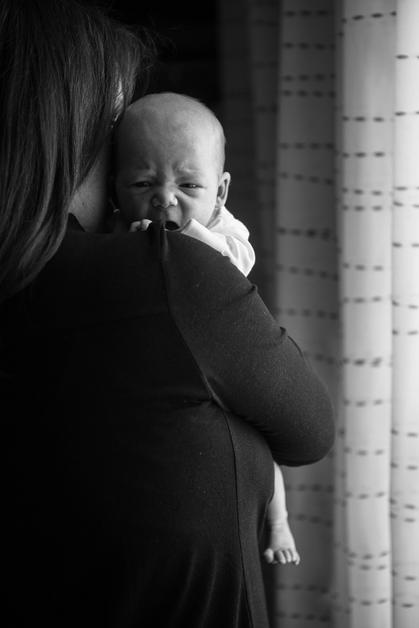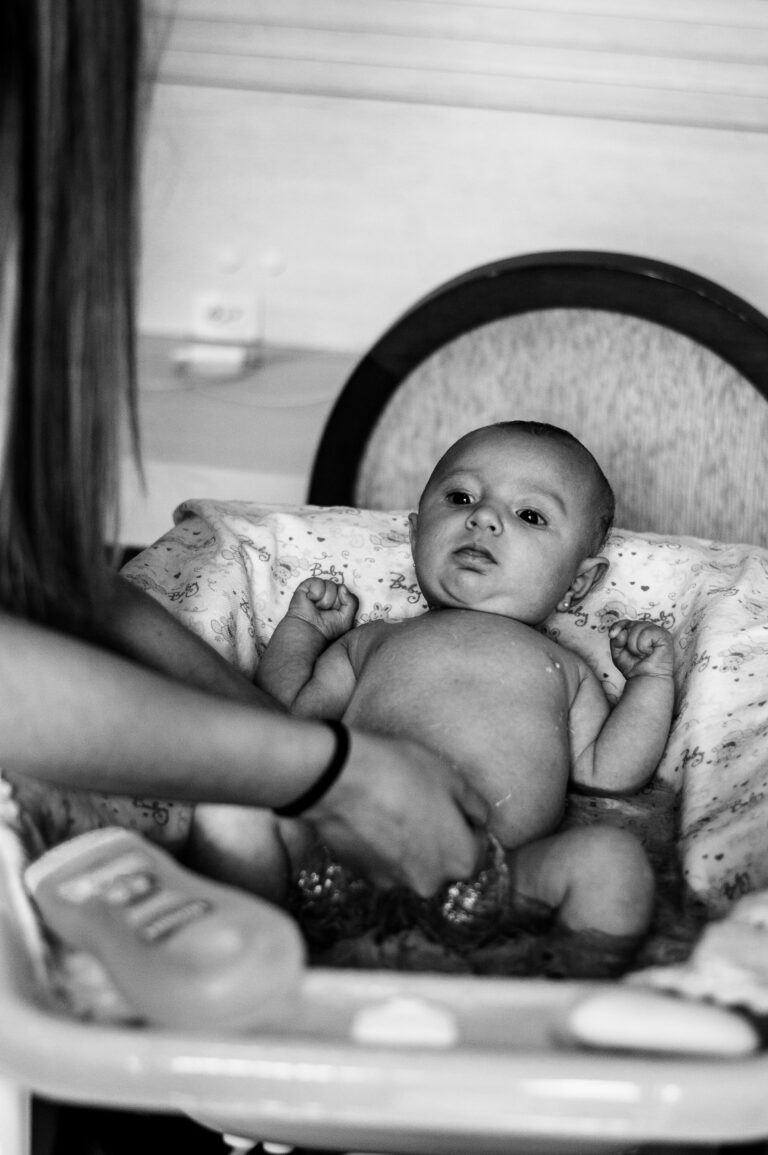Worry knots your stomach—a single cough from your baby is all it takes. You listen closely, replaying every sound in your mind, questioning: Is it a fleeting irritation or the sign of something more? Parents often find themselves on high alert, deciphering the ups and downs of infant health, especially when it comes to baby cough. This journey can be confusing—full of restless nights, anxieties about breathing noises, and uncertainty about when to reach for medical help versus home remedies. From the sudden bark of croup in the darkness to the relentless tickle that keeps feeding on hold, the world of baby cough is anything but monotonous. Clear, scientifically backed information offers a compass through these storms—what a baby cough signals, when concern should turn to action, and what you can do, right now, to help your baby rest, recover, and—above all—breathe easy.
What is a baby cough and why does it matter?
Babies cough for a reason. This essential, reflexive noise is the body’s way of pushing out mucus, dust, or germs—guarding the delicate airways of a developing respiratory system. Yet, unlike adults, a baby’s tiny windpipes clog quickly, amplifying the impact of even mild infections or irritants. A persistent baby cough might be a harmless byproduct of a cold, or it could expose a lurking infection such as bronchiolitis. Why is this vigilance so vital? Simple—babies can deteriorate rapidly, moving from minor symptoms to real distress before you realize. Have you noticed nighttime coughing fits disrupting sleep, or perhaps a harsh, barking sound during inspiration? These clues, when properly understood, can spell the difference between swift recovery and preventable complications.
Types of baby cough: how to recognize and respond
Dry, hacking cough: the tickle that lingers
Picture this: a baby wakes up with a dry, scratchy cough after a day spent in cool air or amongst dusty toys. Nothing comes up but the sound. Common with viral infections or exposure to irritants, this cough can become relentless—especially at night. Is your baby’s cough echoing through the dark, leaving you searching for solutions? Persistent nighttime episodes could hint at airway hypersensitivity or even emerging asthma.
Wet or productive cough: mucus in motion
That unmistakable, gurgly chesty cough signals mucus build-up in the chest, often seen with colds, bronchitis, or RSV infection (respiratory syncytial virus). While this type of baby cough helps clear secretions, excess mucus can interfere with feeding or sleep, nudging parents to monitor for signs of worsening breathing.
Barking cough: croup strikes at night
A seal-like bark slicing through the quiet—classic croup. This infection inflames the larynx and windpipe, bringing a harsh cough with or without an eerie, high-pitched stridor sound as your baby breathes in. The drama often worsens overnight. If you see chest retractions or hear stridor, urgent assessment is needed to avoid rapid airway swelling.
Whooping cough: rapid-fire and relentless
Think of pertussis—the infamous “whooping cough”—as a storm of fits, where clusters of rapid coughs end with a desperate gasp (the “whoop”). For babies, especially those awaiting full vaccinations, this is a medical emergency, as complications arise quickly and recovery can be protracted.
Wheezing or stridor with cough: the breathless puzzle
Sometimes, cough is paired with a whistling wheeze (as the baby breathes out) or a raspy stridor (on inhalation). These sounds suggest inflamed or narrowed airways—common in asthma, allergic reactions, or viral bronchiolitis. Ask yourself: does this make every breath a struggle?
Sudden, choking cough: aspiration warning
A sudden, violent cough during feeding or play—was a piece of food, a crumb, a tiny part of a toy inhaled? Foreign body aspiration in infants can obstruct breathing in seconds, demanding immediate professional attention to rule out blockages.
Nighttime or lasting cough: the stubborn symptoms
A baby cough that ramps up after sunset, or lingers for weeks, deserves special attention. Postnasal drip, allergies, gastroesophageal reflux, or even asthma may be behind chronic or nocturnal cough, always warranting an informed discussion with your pediatrician.
Causes of baby cough: from viruses to environment
Why do babies end up with coughs so often? The reasons are surprisingly varied, each bringing its own script of symptoms and risks.
- Respiratory infections: Colds, flu, RSV, and now even COVID-19 can all hit hard, with congestion, mild fever, and baby cough as leading signals.
- Bacterial invaders: Pneumonia and pertussis trigger coughs that are more severe, persistent, and come with high fever or difficulties in feeding, swiftly demanding antibiotic therapy.
- Environmental factors: Smoke, strong odors, or common allergens like pet dander destabilize sensitive infant airways, spurring sneezing, coughing, and congestion.
- Asthma and airway reactivity: In babies with genetic or environmental predisposition, triggers set off a cascade—dry coughs, wheeze, and breathlessness.
- Croup and swelling: Anything that puffs up the upper airway—usually viral croup, sometimes allergies—produces that unmistakable bark.
- Reflux: When stomach contents escape into the throat, a gastroesophageal reflux-related baby cough emerges, especially after meals or when lying flat.
- Saliva overflow during teething: More drool can mean more throat clearing, but persistent or severe cough never stems from teething alone.
- Foreign objects: Rapid onset cough with no illness? Suspect aspiration and seek rapid assistance.
Symptoms and signs: red flags for parents
How do you tell a garden-variety baby cough from one that demands urgent care? Let’s break down the signals.
- Common companions: Nasal stuffiness, low-grade fever, decreased appetite, irritability, and sleep disruptions are expected with most mild infections.
- Warning signs: Fast or noisy breathing, chest retractions (the chest sucking in with effort), flaring nostrils, blue lips or skin, or excessive drowsiness aren’t just worrying—they’re signals for immediate action.
- Dehydration: Fewer wet diapers, sunken fontanelle, or no tears when crying warn of insufficient fluid intake, often due to cough and poor feeding.
- Persistent trouble: Any baby cough lasting more than three weeks—or worsening over time—moves beyond ordinary. Persistent symptoms like unexplained weight loss, poor growth, or repeated vomiting require urgent assessment.
Diagnosing baby cough: what to expect at the doctor’s office
Preparation eases worry. Healthcare providers lean heavily on your description: When did the baby cough start? What does it sound like—dry, wet, barky, choked? Are there fevers, breathing problems, or changes in feeding?
Doctors listen to the chest for telltale noises like wheeze or crackles, check for stridor, and look for retractions. In trickier or more severe cases, a chest X-ray can help identify pneumonia while viral or bacterial swabs clarify the cause. Blood tests might enter the scene if inflammation or underlying immune difficulties are suspected. Persistent or unexplained baby cough may lead to allergy or reflux evaluations. Sometimes, what looks simple at first reveals itself to be more complex only over time.
When to seek medical help for baby cough
- Emergency scenarios: Severe labored breathing, blue or pale lips or tongue, lethargy, pauses in breathing, or signs of dehydration—these all call for immediate help. Question: Is your baby struggling more with each breath? Trust your instincts.
- Important triggers for a doctor’s visit: A cough that comes with high fever (especially in infants under three months), rapid breathing, ongoing vomiting, feeding refusal, or pronounced fatigue should always be promptly assessed.
- Special note for newborns: Any baby cough in a newborn (zero to three months) prompts quick evaluation—young infants are simply more vulnerable.
- Symptom tracking: Keeping a log—cough frequency and sound, associated symptoms, and sleep or feeding changes—can shed light for your provider, helping guide targeted care.
Home care and comforting strategies for your baby
- Fluid focus: Hydration matters. Regular breastmilk or formula for the youngest, with sips of water for older babies, soothes airways and thins secretions.
- Nasal hygiene: Saline drops plus a suction bulb clear blockages, lending relief, especially before feeds or sleep.
- Humidification: Cool-mist humidifiers infuse the nursery air with gentle moisture. Well-ventilated, smoke-free environments are a must. Avoid scented cleaners and air fresheners—they can trigger or worsen a baby cough.
- Body positioning: Hold your baby upright after feeds. If breathing is tough during sleep, raise the crib’s head gently by adjusting the legs (never with loose items inside the crib). Safe sleep rules always apply—babies under one year should sleep flat, on their backs, with no soft bedding.
- What to avoid: Over-the-counter cough syrups and honey can do real harm to infants—honey before one year carries a risk of botulism. Skip essential oils, menthol rubs, and any home concoctions not vetted with your doctor.
- Soothe routines: Extra snuggles, humidity, and gentle bedtime rituals buffer your baby through rough nights—a small comfort when coughs disturb much-needed rest.
Medical treatments and hospital care
- Prescription options: Only infections proven to be bacterial—like pneumonia or pertussis—warrant antibiotics. Bronchodilators (medications to open airways) and corticosteroids might be prescribed for asthma, severe croup, or significant inflammation, but these are always under the physician’s direct supervision.
- Hospital interventions: Babies with severe distress may receive oxygen, close monitoring, or IV fluids. For most, recovery is reassuringly swift once the cause is identified and care provided.
- Course of recovery: Viral coughs naturally resolve. Bacterial infections respond to targeted medicines, with noticeable improvement typically within days.
Prevention: practical steps for keeping baby cough at bay
- Optimize the home environment: Regularly air out rooms, maintain balanced humidity—especially during dry winter months—and strictly avoid smoke exposure. Dust, vacuum, and use gentle cleaners to minimize allergens.
- Vaccinations and hygiene: On-time routine immunizations guard against severe illnesses. Teach consistent hand-washing and keep a cautious distance from sick contacts during viral surges.
- Support natural defenses: Breastfeeding, frequent cleaning of toys and surfaces, and monitoring for allergy triggers reinforce immunity against baby cough. Encourage healthy habits as part of your daily routine.
Potential complications of baby cough
- Lower respiratory disease: Untreated, persistent cough can evolve into pneumonia or bronchitis.
- Dehydration and distress: High coughing frequency may lead to dehydration or even respiratory failure in rare cases—always pay attention to feeding and urine output.
- Chronic issues: Repeated baby cough episodes may tip the balance toward asthma or ongoing airway sensitivities, especially after RSV or severe infections.
- Impact on thriving: Lack of sleep, poor feeding, and excessive discomfort undermine wellbeing—parents’ early responses make a significant difference.
Myths versus facts: decoding confusion around baby cough
- Cough syrups for babies? Not safe, not appropriate. Side effects outstrip any fleeting benefit; cough serves a purpose in expelling unwanted material.
- All coughs mean infection? Not at all. Allergies, reflux, and inhaled irritants account for a significant percentage of baby cough episodes.
- Teething triggers bad coughs? Despite the drool and constant mouthing, true coughs tied directly to teething are extremely rare.
- Antibiotics for mucus? The presence of phlegm doesn’t automatically validate antibiotic use—most baby cough cases are viral.
- Home remedies — fact or fiction? Hydration, humid air, nasal saline—these simple measures hold genuine benefit. Avoid honey, herbal rubs, or anything untested, and when in doubt, professional guidance is the best remedy.
Empowering parents: vigilance, self-care, and trusted advice
- Observation is power: Tune in to changes—no one knows your baby’s patterns better.
- Managing your own stress: Yes, these moments are tough. Rely on support networks, brief respites, and the knowledge that informed decisions shape safer outcomes.
- When to call for help: If you sense your baby is struggling, reach out—for your reassurance or for swift, targeted intervention.
Key takeaways
- Baby cough is common, but recognizing the difference between routine symptoms and signs that need attention empowers you to act effectively.
- Never use cough syrup or honey for infants under one year—focus on hydration, gentle nasal care, and comfort measures.
- Immediate beacons for help include trouble breathing, blue lips or face, high or persistent fever, repeated vomiting, or refusal to feed.
- Creating a smoke-free, well-ventilated home, up-to-date vaccinations, and good hygiene habits can prevent many cough episodes.
- Trust your judgment; professional support is always available for guidance and reassurance. For additional advice and free health questionnaires tailored for your child, explore the Heloa app. Your vigilance and care carry enormous value—every cough heard, every comfort offered, is a step toward your baby’s health and your confidence as a caregiver.
Questions Parents Ask
Can teething cause a cough in babies?
Teething can sometimes be linked to an increase in drooling, which may lead to a mild throat clearing or occasional cough. However, a true, persistent cough isn’t directly caused by teething alone. If your baby’s cough seems frequent, is accompanied by other symptoms (like fever or trouble breathing), or lasts more than a few days, it’s always best to check in with your pediatrician for reassurance and guidance. There are often other, treatable reasons behind a baby’s cough, and votre vigilance is valuable.
When is a baby cough considered an emergency?
It’s normal to feel concerned when your baby coughs, and some situations do require prompt attention. If your baby is struggling to breathe, showing blue or pale lips, experiencing pauses in breathing, or has difficulty feeding alongside the cough, it is important to seek urgent medical help right away. Babies under three months with a cough or any sudden change in their breathing also need to be seen quickly. Rassurez-vous, your instincts are precious—reach out if you feel worried.
How can I help my baby sleep better when they have a cough?
Helping your baby rest comfortably with a cough can be challenging, but a few gentle strategies may bring relief. Try using a cool-mist humidifier in their room to ease breathing. Elevate their head slightly (by safely adjusting the crib legs, not with loose bedding), and keep their nasal passages clear with saline drops and gentle suction. Making sure your baby stays well-hydrated, whether through breastmilk, formula, or water (for older babies), can also help. If sleep remains very disturbed or if you’re worried about their breathing at night, don’t hesitate to reach out for professional advice. You’re doing your best, and every comforting gesture helps your child recover.

Further reading:









